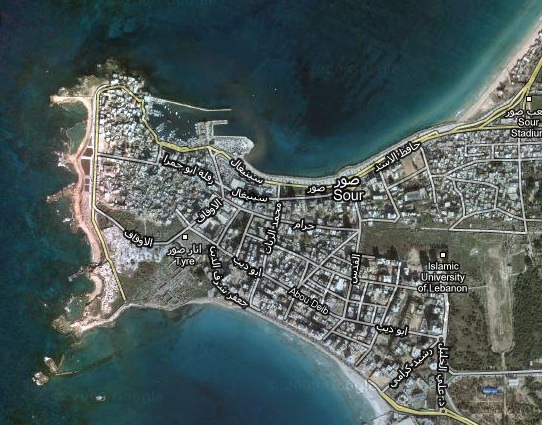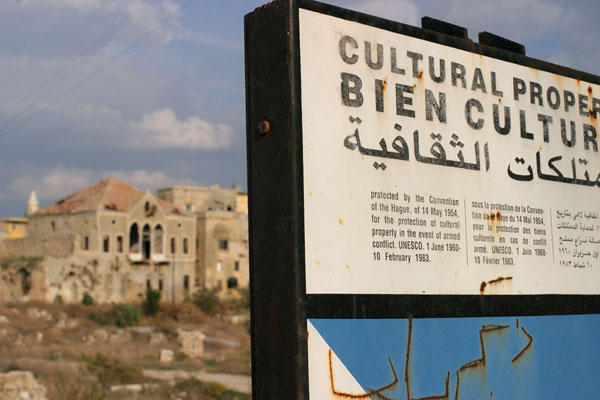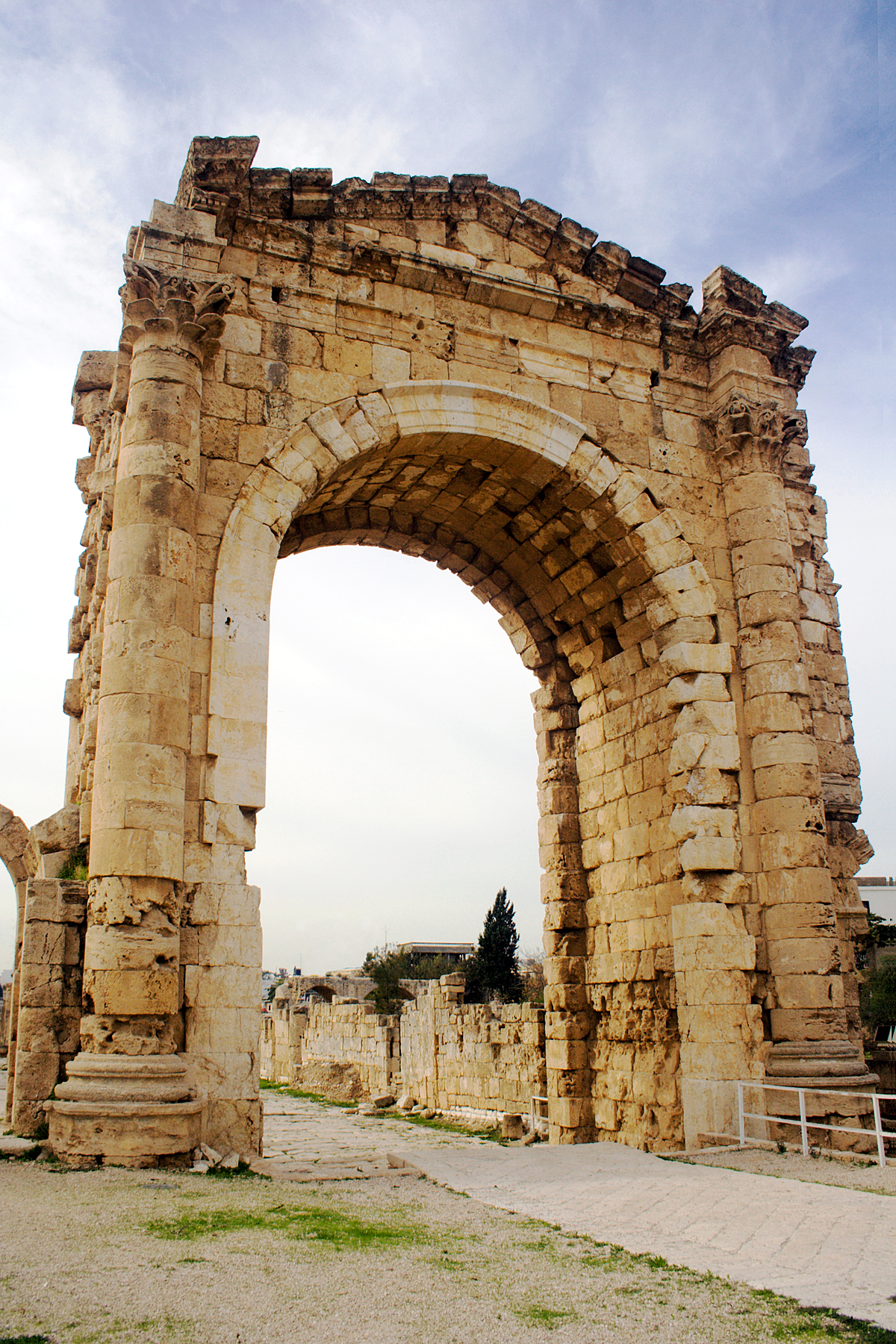Wail, O ships of Tarshish,
for Tyre is laid waste, without house or haven!
From the land of Cyprus it is revealed to them.
2 Be still, O inhabitants of the coast,
O merchants of Sidon; your messengers passed over the sea
3 and were on many waters; your revenue was the grain of Shihor,
the harvest of the Nile; you were the merchant of the nations.
4 Be ashamed, O Sidon, for the sea has spoken,
the stronghold of the sea, saying: “I have neither travailed nor given birth,
I have neither reared young men nor brought up virgins.”
5 When the report comes to Egypt,
they will be in anguish over the report about Tyre.
6 Pass over to Tarshish, wail, O inhabitants of the coast!
7 Is this your exultant city whose origin is from days of old,
whose feet carried her to settle afar?
8 Who has purposed this against Tyre, the bestower of crowns,
whose merchants were princes, whose traders were the honored of the earth?
9 The LORD of hosts has purposed it, to defile the pride of all glory,
to dishonor all the honored of the earth.
10 Overflow your land like the Nile, O daughter of Tarshish;
there is no restraint any more.
11 He has stretched out his hand over the sea, he has shaken the kingdoms;
the LORD has given command concerning Canaan to destroy its strongholds.
12 And he said: “You will no more exult,
O oppressed virgin daughter of Sidon; arise, pass over to Cyprus,
even there you will have no rest.”
13 Behold the land of the Chaldeans!
This is the people; it was not Assyria.
They destined Tyre for wild beasts.
They erected their siegetowers, they razed her palaces, they made her a ruin.
14 Wail, O ships of Tarshish,
for your stronghold is laid waste.
15 In that day Tyre will be forgotten for seventy years,
like the days of one king.
At the end of seventy years, it will happen to Tyre as in the song of the harlot:
16 “Take a harp, go about the city,
O forgotten harlot!
Make sweet melody, sing many songs, that you may be remembered.”
17 At the end of seventy years, the LORD will visit Tyre,
and she will return to her hire,
and will play the harlot with all the kingdoms of the world
upon the face of the earth.
18 Her merchandise and her hire will be dedicated to the LORD;
it will not be stored or hoarded,
but her merchandise will supply abundant food and fine clothing
for those who dwell before the LORD.
Tyre and its sister city of Sidon were the main cities of what the history books call Phoenicians the Bible call Canaanites. A great deal of everything traded in the ancient world went through the hands of the Phoenicians. They were the center of what was world trade. They ran the cargo ships and controlled most of the cargo of the known world. We know they sailed as far as Scotland, and suspect they even made it to the Americas.
Conflict in Prophets
Isaiah says that Tyre will be raised by the Babylonians and not the Assyrians, to be abandoned for 70 years, while Ezekiel says it will be gone forever. People still live in the modern city of Tyre in Lebanon. What’s going on? In ancient times the city of Tyre was the capital of all trade in the Mediterranean. It was the crown jewel of prosperity. The city was in two parts, there was a town on the mainland, as well as one out on an island in the sea.
Although this is a posting on the oracles of Isaiah, there is a longer prophecy about Tyre in Ezekiel 26-28. The Ezekiel passage has a lot going on and deserves a post all its own, but we will look at it here briefly. One of the differences that must be remembered is that Isaiah was written before the exile to Babylon, whereas Ezekiel was written during the exile in Babylon. (Ezekiel wrote over 20 years, and was a contemporary of Jeremiah and Daniel.)
Isaiah speaks of the reaction of the cities of Tarshish, Cyprus, and Sidon. These were all fellow Phoenician/Canaan ports. The Phoenicia had a huge empire of independent city-states throughout the Mediterranean. Modern geneticists have been able to show that 14% of the men living near the Mediterranean Sea have a Phoenician marker in their DNA.
History
 Nebuchadnezzar occupied the mainland city and laid siege to the island for thirteen years, without success. A compromise of peace was made in which the island part of Tyre paid tribute to the Babylonians. Cyrus the Great conquered Phoenicia/Canaan in 539 BC.
Nebuchadnezzar occupied the mainland city and laid siege to the island for thirteen years, without success. A compromise of peace was made in which the island part of Tyre paid tribute to the Babylonians. Cyrus the Great conquered Phoenicia/Canaan in 539 BC.
In 332 BC, the city was conquered by Alexander the Great, after a siege of seven months in which he tore down the land part of the city to build a causeway from the mainland to the island.
Over the years the causeway affected water currents nearby, causing sediment to build up, turning the island into a peninsula. In 126 BC, Tyre regained its independence from the Greek Seleucids and remained independent until Rome turned the area into a province in 64 BC.
After all this, the Phoenicians abandoned Tyre as their governmental center. They moved the center of their trading empire to Carthage. The majority of the trade shifted to the Greeks. Tyre was rebuilt up the coastline. However, it was never the great center of commerce that it had once been.
 In recent decades that modern city up the coast began to spread threatening to build on top of that old abandoned one. So in 2006, the ruins of the old city were placed under a “Heritage Alert” by UNESCO. No one lives there. Just as Ezekiel prophesied.
In recent decades that modern city up the coast began to spread threatening to build on top of that old abandoned one. So in 2006, the ruins of the old city were placed under a “Heritage Alert” by UNESCO. No one lives there. Just as Ezekiel prophesied.

